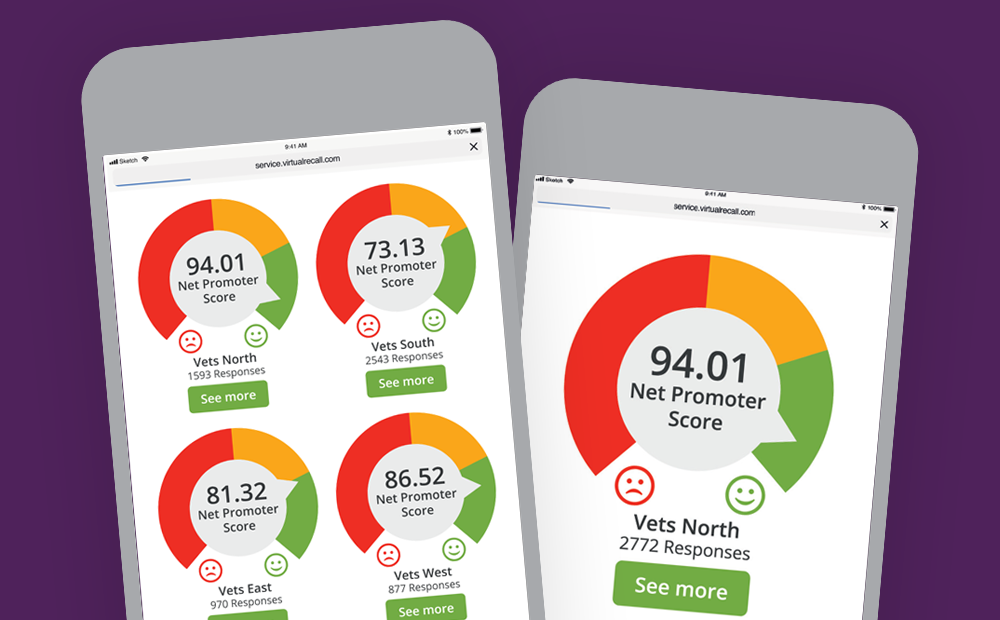
What is NPS®?
Before booking a restaurant, planning a trip, buying a fancy new product or registering my dogs at the new groomers, I always consult the internet. Checking online reviews is one of the first steps for most consumers, and studies show that 84% of people trust online reviews as much as recommendations from friends and family.
Since customers are 3X more likely to talk about bad experiences than good, it's essential the negative reviews are dealt with, and the positive reviews are shared. To help, we have NPS®! These trusted reviews include the good as well as the bad, and now, with the help of social media, customers can share recommendations and reviews quickly and easily.
So what does NPS stand for?
NPS stands for Net Promoter Score. The NPS is a metric used to indicate customer satisfaction and loyalty. The higher your NPS, the more loyal your customer base.
How is the NPS calculated?
The NPS is based on one simple question 'How likely is it that you would recommend 'company' to a friend or colleague?'.
This is often asked within a customer feedback survey and is answered on a scale from 0-10.
A company's NPS is the percentage of promoters, MINUS the percentage of detractors. Those that are passive are 'ignored'.
Promoters: those who score between 9-10
Passive: those who score between 7-8
Detractors: those who score between 0-6
For example:
If 70% of respondents are promoters, 20% passives and 10% detractors (70%-10%), then your NPS would be 60.
What's a 'good' NPS?
NPSs are measured on a scale from -100 to +100. So, generally speaking, an NPS of 0-50 is considered good, 50-70 is deemed excellent, and 70+ is world-class.
The good news is that clients LOVE their vets, and the average NPS for an iRecall® practice tends to be around the mid 80's - world-class.
Some of the best 'large company' Net Promoter Scores:
Costco 79
John Lewis 68
Apple 47
What do I use my NPS score for?
The NPS is just a metric but a useful one. It allows you to track trends over time which can be compared across multiple veterinary practice sites. It can help your brand evaluate customer loyalty, and in turn, help you understand the likelihood of them repurchasing or cancelling payment plans.
Making sure you use a review platform will continuously provide insights into your business and your team. Many review platforms have been designed to give practices feedback to help identify their strengths or areas to work on.
Will online reviews impact my veterinary business?
A negative review will make 4 out of 5 people think twice about spending their well-earned money at your practice, which can be a common obstacle when trying to encourage new customers.
On the other hand, positive reviews do quite the opposite. Since 80% of happy customers will provide recommendations, and 70% of consumers are more likely to purchase if a friend talks about it on social media, getting those recommendations online can really make the difference.
Even better, it's proven that a referred customer has a 16% higher lifetime value.
Customer feedback and reviews are essential, and so it's valuable to a company to track its NPS. This metric, combined with reviews, allow a practice or business to pinpoint and showcase their outstanding work whilst managing areas of improvement.
Good reviews encourage new business and are often the first place people look when making a financial decision. Old and bad reviews discourage, so it's vital to ensure good reviews are regular and the bad are dealt with quickly and efficiently.
Google and Facebook are great places to start your online reviews. The first step, make sure you're asking your customers for their feedback!
Find out how to get more online reviews, and the best way to manage feedback.
